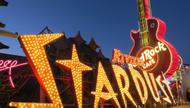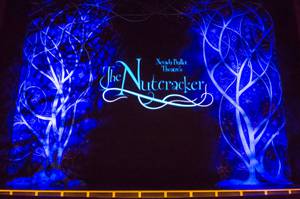The last decade of Jill Soloway’s life has been a wild ride. As the writer and director behind Amazon’s Emmy award-winning show Transparent, Soloway became a name to know practically overnight. The writer and director, who came out as non-binary last year and uses they/them pronouns, based the show off the own real-life experience of having a parent come out as trans. And then, at the height of the #MeToo movement, the show’s lead actor, Jeffrey Tambor, was accused of sexual harassment by a trans woman.
It’s all there in Soloway’s new memoir, She Wants It: Desire, Power, and Toppling the Patriarchy—the rise and fall of Transparent—what it’s like to have a parent come out as trans, living as a straight, cis-female in a heterosexual relationship, then going through a divorce, dating women and coming out as non-binary.
All of these topics, and more, came up when the Weekly spoke with the writer, and they’ll likely come up again when Soloway and Soloway’s sister Faith co-host the finale of the Believer Festival, titled Uproar at Ham Hall, April 27 at UNLV.
Hello, how are you today? What are you up to? I’m editing the Transparent musical finale and taking a little break from the dark post-production room.
Your new memoir talks a lot about your identity as a non-binary person. As someone who has also thought at length about the implications of gender and identity, I’m curious about what your experience has been like coming out as non-binary while in the spotlight. It’s actually been a lot easier than I thought. At first, sometimes I would be having conversations with reporters who didn’t really get it, and they would ask really invasive questions. I remember talking to a cis-male reporter early on that really wanted to know, “Were you attracted to men when you got married?” Something that had nothing to do with my identity; just things that he wanted to make sense to him, and I remember thinking, “Oh my God, now I have to figure out how to help straight men understand this in relation to their own ideas about who I am.” First I think there was a little more ignorance about it, and I had to do a lot of educating. Now it feels like it’s so much more common, and it feels very light and easy, in a way because I meet so many people going, “Yeah, that’s me, too.” The more I hear people saying, “That’s me, too,” the lighter it feels.
Do you worry that you’ll always be labeled as “the non-binary writer and director?” That would be fine with me if I was labeled that; I would be proud to be labeled that. I’m not sure if I’m going to identify as non-binary for the rest of my life. I feel like I probably will, but I couldn’t even have imagined this identity as a possibility, let alone me feeling like it was me, like, five years ago. Now it’s so common that I can’t even imagine what the world is going to be like in 10 years or 20 years. Maybe people won’t even need gender.
Let’s back up to where you said you’ve felt like you’ve had to educate straight, cis-men to understand what being non-binary is, because that’s something you also tackle in your memoir. For some non-binary people, the way they identify with femininity or masculinity is always changing. And I think that’s a concept that a lot of people, especially cis-men, are struggling to understand, or it scares them. Why do you think that is? I think patriarchy has provided them the experience where they just get to orient themselves at the center of the world. Change is hard and people are afraid that they’re going to be embarrassed or they’re going to use the wrong pronouns. With me, one of the odd things I think happens—as somebody who’s experienced the world as a straight-identifying, cis-identifying heterosexual woman—there are a lot of men who I come across who I had a flirtation with, a romantic relationship, or it was cute and hetero and fun. When I let them know I don’t identify as female anymore and that I identify as this thing that is kind of both and neither and either, especially since I’m masculine leaning, I think it does call into question, “What does that mean about our previous romantic connection? Does that mean that I’m gay or I was a little bit gay? If I’m still attracted to you now, does that make me gay?” I think it’s confusing.
You’ll be speaking at the Believer Festival on Saturday. Are these topics that will be central to your hosting of that event? Yeah. There’s this thing I talk about [called] non-binary thinking, and that’s the thing I think non-binary people are asking other people to indulge in for just a millisecond—which is, this person I’m speaking to is neither male or female or maybe both or maybe always changing; it doesn’t really matter, they’re just a person. One of the things I’m most excited about is this conversation I’m convening onstage, which is this sort of feminist, queer Bill Maher [experience], and having these conversations about feminism and race with people like Masha Gessen and Janaya Khan, both of who identify as non-binary. So there will be three non-binary people onstage talking about very binary and political issues. … I’m really excited to have a conversation with non-binary people about these sort of binary dead ends and various aspects of the movement.
I’m curious what you first thought when you heard there would be a literary festival taking place in Las Vegas. When I heard about the Black Mountain Institute or [that] there was anything academic or literary going on in Las Vegas, it was really hard to get my head around. I think another thing is like, because my sister Faith and I really love live events and live entertainment and we love combining comedy and politics and emotion and entertainment. There’s people doing practically circus acts. We’re really [embracing] the Vegas vibe.
Feminism is often misconstrued as something very hard-lined and rigid and can kind of scare people away, but this event sounds quite the opposite. Were you consciously thinking of how to bring other people, like folks who might not identify as feminist, into the fold? Always. People are often off in their own separate groups, and those ways of being and seeing entertainment can be very filed off, [like] “only trans people go to this event” or “only queer people.” There’s a trans woman, there’s a drag queen, there’s non-binary people—all different kinds of gender expressions … going in and giving birth to a night of fun, which is a challenge. There’s so much division in this world—“if you like this, then you can’t like that”—and if we’re going to talk politics it can’t be silly.
There’s this performer Dina Martina, who’s a drag performer [but] really like a chaos clown; she’s one of my favorite performers ever. To have her in the context of this larger evening where we’re talking about, for example, the politics of the women’s march and trying to get past the standstill around the idea that if feminism is going to succeed, it’s because all women [have to] agree… We’re trying to blow past that and create an environment of fun and joy that people can walk out of and say, “Yes, the revolution can be fun. The revolution must be fun.”
Let’s talk about Transparent. When can we expect the final season to come out? I think in the fall. And it’s actually not a season; it’s a movie, a musical. So it’s going to be a few-hour event extravaganza, singing and dancing Pfeffermans. The show isn’t ending; it’s transitioning into a musical.
Last year you found yourself in a position where you had a hit show based on your parent who came out as trans, you’re a feminist, you’re coming to terms with your own identity—and then your show was thrust into the #MeToo movement when Jeffrey Tambor was accused of sexual harassment. What did you take away from that experience? I think the biggest thing I learned—again, because I’m so recent to the world of queer politics and gender politics—I think I had a lot of empathy for the men who were faced with this change in ethics. It took me a long time to think about it. Ultimately, I think one of the conclusions I came to [is that] it’s not about power, it’s not about certain behaviors. It’s about certain behaviors and power as they exist in a patriarchal culture. So it’s about patriarchy; it’s about white supremacy. It just means we live in a world where mostly white men are in charge of most things. We must take into context that we live in patriarchy and that if you are a white man, you do have a lot of power—even power you don’t think you have. For me, I heard a lot of white men, people like Louis CK, who would make the excuse like, “What do you mean I have power over a young woman who’s beautiful?” “What do you mean I have power over somebody who is 20 years younger than me and super hot? That’s not true, I don’t have power over them, they have power over me.”
And the missing piece is patriarchy. You have patriarchy on your side, meaning that you live in a world where mostly white men have made the rules about most everything. That’s an invisible privilege you don’t even realize you have that you have to take into account when you begin pushing yourself into other people’s spaces, literally [and] metaphorically. It’s the patriarchy, and it took me a really long time to understand. People are looking for rules, like, “Does this mean I can’t hug at work?” Not if you’re the boss, you can’t hug the intern, no. If you’re the boss and you’re male and you’re white—people of color, queer people, young people, trans people, they’re not in the position to say no, and that’s what patriarchy is; the invisible world that is oriented toward the white man’s power. [But] this is great news for white men. It means they don’t have to make up all the rules themselves. It just means that they need to move through the world more gently, more carefully, [to] ask … and just being willing to look at power dynamics.
Being in a position where, because of Transparent and because of my feminism I was able to help and interpret and find the right language, mostly it’s been an honor to feel needed as somebody who’s thinking about this stuff in this moment in our culture. I also think, 10 years ago, I would’ve been like the cute young girl on staff with a whole male writer’s room—to now moving toward identifying as masculine or non-binary or queer and having bodily lived both experiences has proved so much of this to me.
Given everything that happened, you had to seriously pivot with the finale. Are you happy with the way it turned out? I’m so stoked. I can’t wait for people to see the movie. My sister wrote all the songs, all the lyrics … I’m beyond happy and ecstatic and goofy and giddy. I feel really proud and lucky to have found a way to slowly but surely repair this thing that was so important to not only us but to the world and the trans community, and repair it in a way that feels joyful.
Uproar at Ham Hall Hosted by Jill and Faith Soloway, with Janaya Khan, Masha Gessen, Dina Martina, Jari Jones & Delia Rawdon. April 27, 8 p.m., $15. UNLV's Artemus W. Ham Concert Hall, believerfestival.org.
The Believer Festival April 25-27, various locations, believerfestival.org.








